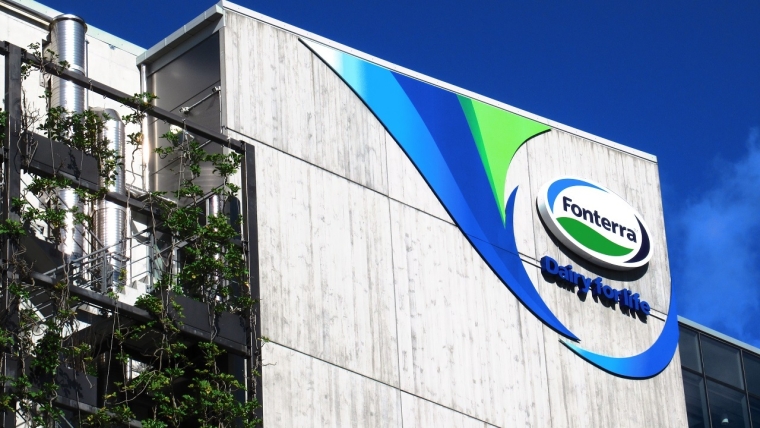
The following press release was received from Fonterra.
Fonterra Co-operative Group Ltd today upgraded its earnings guidance to 50 – 70 cents per share from 45 - 60 cents per share and lowered and narrowed its forecast Farmgate Milk Price range of $8.50 - $10.00 per kgMS to $8.50 - $ 9.50 per kgMS, with a midpoint of $9.00 while holding its advance rate. It also reported a strong start to the 2023 financial year.
Fonterra CEO Miles Hurrell said it was a positive start to the year given the current global operating environment. “We continue to feel the impact of geopolitical and macroeconomic events, with higher costs at every point in our supply chain. It’s a similar story behind the farm gate with our farmer shareholders managing significantly higher input costs.
“Globally, milk supply from key exporting regions is down over the last 12 months. Production in Europe and Australia continues to be down, with US milk supply showing a slight improvement in recent months. Here in New Zealand, our milk production is down 2.9% on the same point last season.
“Global market volatility has prompted some softening of demand for whole milk powder, particularly in Greater China and this is reflected in our forecast Farmgate Milk Price range. We’ve seen increased participation from other regions which has offset in part the drop in demand from Greater China. While it’s still early in the financial year, we are happy with our sales contract rate.”
Financial performance
“The strong performance of our Ingredients channel reflects continued favourable margins in our protein portfolio, particularly for our casein and caseinate products used in medical nutrition. This is driving the increase in Total Group normalised EBIT, which is up 94% to $368 million. Normalised profit after tax is also up 84% to $214 million and normalised earnings per share are 13 cents, compared with 7 cents at the same point last year.
“The sustained strong margins in our protein portfolio give us the confidence to upgrade our earnings guidance, although the wider range reflects the volatility in the market which we expect to continue in the short to medium term. If these conditions continue for a further extended period, it could have an additional positive impact on forecast earnings.”
Performance in the Co-op’s Foodservice channel improved relative to the same period last year, but the high milk price is continuing to put significant pressure on margins in both the Foodservice and Consumer channels.
Mr Hurrell said significant progress had been made on shipping the additional inventory held at financial year end. “As planned, inventory volume has returned to normal levels. Lower milk collections at the start of the season have also contributed to the reduced inventory levels.”
Progress against strategy
Mr Hurrell said the Co-op was making good progress against its 2030 strategic ambitions. “As we focus on our New Zealand milk pool, we’ve agreed the sale of our Chilean business. We continue to target a significant capital return for our farmer shareholders and unit holders.
“Sustainability is at the heart of everything we do. We recently released our Sustainable Finance Framework, which aligns our funding strategy with our sustainability ambitions.
“Together with Nestlé, we’re working on a New Zealand first - the development of a commercially viable, Net Zero Carbon, dairy farm. Over the next five years, the partnership will examine all aspects of farm operations to identify opportunities for carbon reduction by using proven and future technologies to work towards its net zero carbon target. We’ve also signalled that we’re considering setting a target for scope 3 emissions.
“A strong united Co-op is important for our shareholders, our unit holders and New Zealand as a whole, so we’re looking forward to implementing our Flexible Shareholding capital structure next year.
“Our Flexible Shareholding capital structure makes it easier for new farmers to join our Co-op, and for existing farmers to remain with our Co-op. This supports our strategy, to maintain a sustainable milk supply, protect farmer ownership and control, and support a stable balance sheet.”
Looking ahead, Mr Hurrell said the long-term outlook for dairy remains strong. “There’s no doubt that we’re in a period of increased global uncertainty. Inflationary pressures are being felt both on farm and across our business but looking further out, the fundamentals for dairy remain positive.”

We welcome your comments below. If you are not already registered, please register to comment
Remember we welcome robust, respectful and insightful debate. We don't welcome abusive or defamatory comments and will de-register those repeatedly making such comments. Our current comment policy is here.